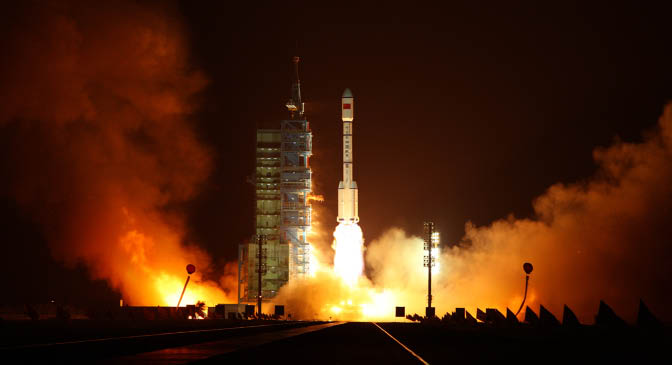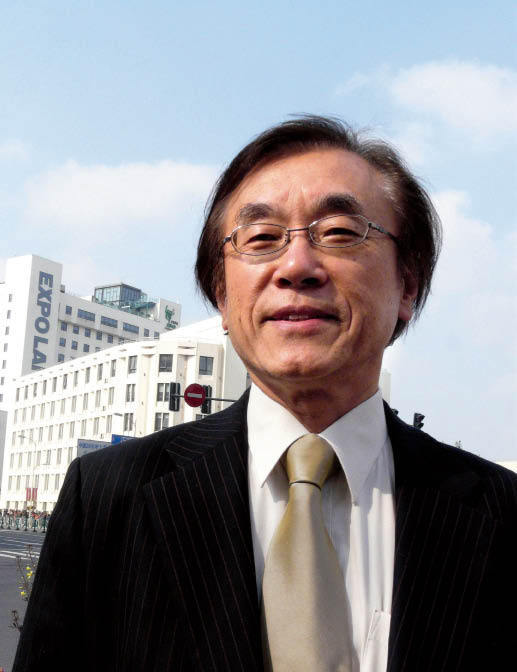 |
| The Long March 2F-T1 rocket sends the Tiangong 1 space laboratory into outer space on September 29, 2011. |
A Crucial Decade for the Growth of National Strength
By NORIYOSHI EHARA
TEN years are like a blink of an eye in China’s 5,000-year-long history. But in the past 10 years huge and unprecedented changes have taken place in China that have impressed the entire world and will determine the country’s future.

Going for Economic Gold
In sports, athletes from all countries and regions, no matter what social systems, religions and beliefs they are governed by, follow the same rules in international competitions. At the London summer Olympics in August this year, China ranked second on the medals table. Four years earlier, at the 2008 games held in Beijing, China won the most gold medals.
But how is China’s performance in the world economy? In 2010, China’s GDP exceeded that of Japan, and the country became the second largest economy, essentially winning an economics silver medal. When in another four years the next Olympics brings the world’s nations together once again, there is a strong possibility that China will have knocked the U.S. economy from its pole position.
When talking about the many achievements China has made in the past decade, people may cite the huge increase in its GDP, which has made China a world economic power. China’s GDP per capita in 2003 was just US $1,000, but reached US $ 5,414 in 2011, a more than five-fold increase. This has elevated China to the level of medium-income countries, though its GDP per capita is still only one eighth of Japan’s. The 2008 Olympics and the Shanghai Expo in 2010 should also be noted. As China’s newspaper People’s Daily remarked, China has become part of the world, not merely a bystander.
Now its economy and people are moving toward the world. The Shenzhou spacecraft, the Chang’e space program, and the high-speed railway network are all proof of the achievements made in these 10 years. When I first came to Beijing in 2001, China was still discussing importing high-speed railway technology. But in less than 10 years, it has developed the necessary technologies and built high-speed railways on its own, and is even building them for other countries. In June this year, the Shenzhou 9 carried China’s first female astronaut into space and docked successfully with the Tiangong 1 space station. America’s The Atlantic monthly described the event as “Hu Jintao’s Kennedy Moment.” Moreover, the government plans to put a man, or a woman, on the moon, though its implementation schedule is not known.

